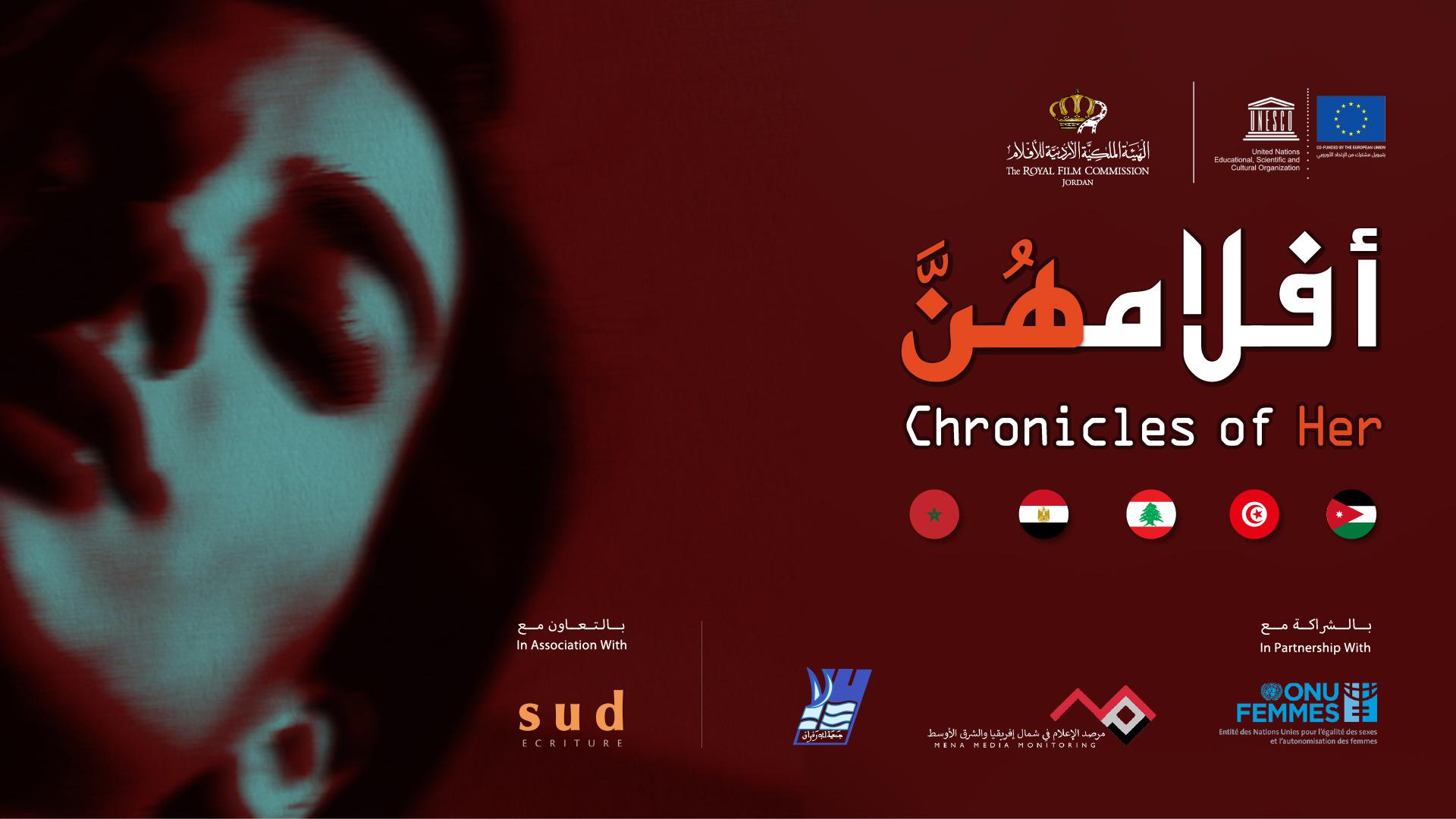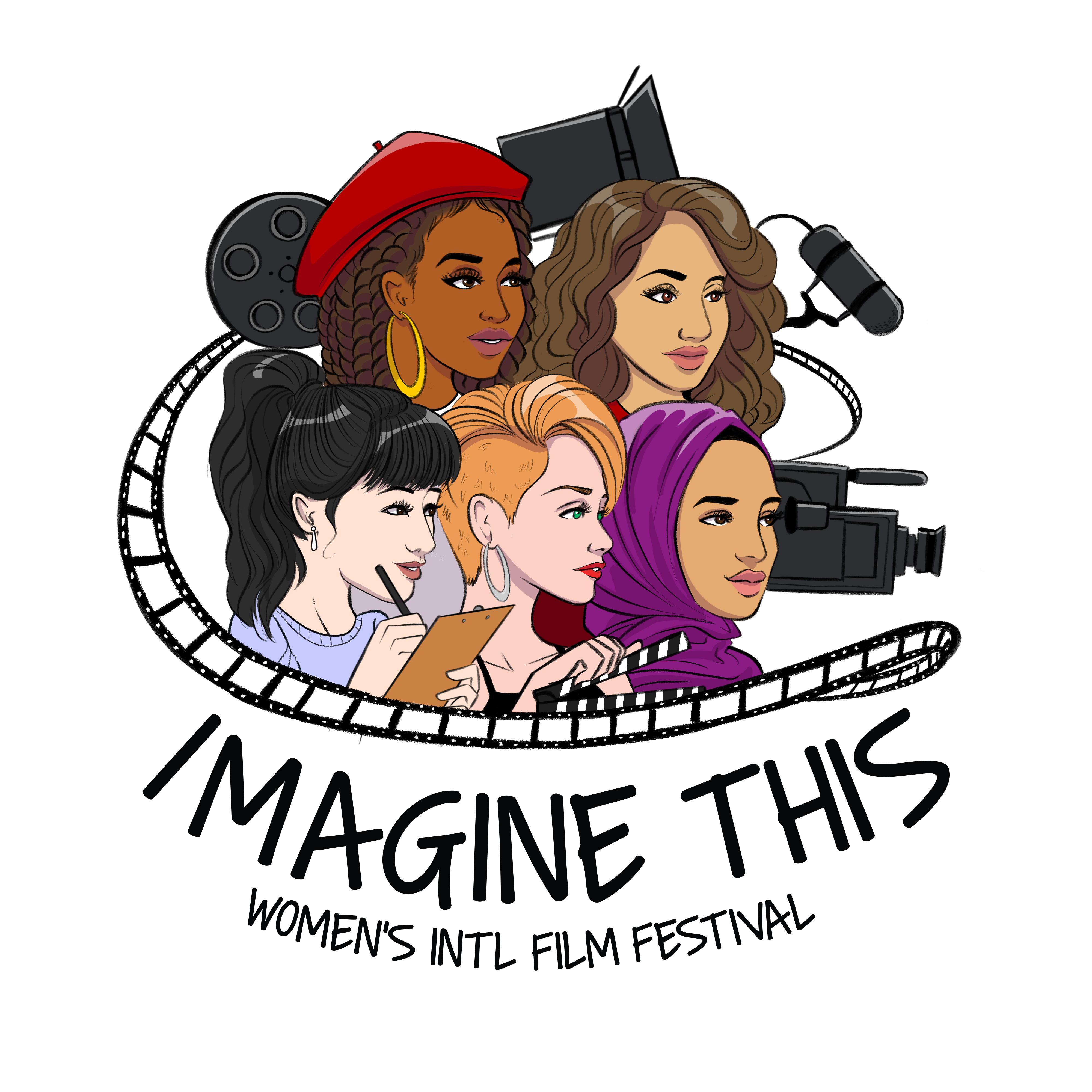
Five heroines from five different, yet similar, worlds face social and systematic oppression and injustice. We follow their journeys as they struggle for hope and a better life.
1. Diana, a young farmer who comes from a conservative family, lives in the rural villages of the country. During her day-off, she and her two sisters sit on the rooftop, preparing themselves for the wedding of one of the neighbors. Weddings are an essential occasion for the women in the village; they use it to celebrate what's left of their femininity, which is lost mainly due to their hard work on the farms. As for Diana, it's a great chance to meet her secret boyfriend. After she meets with him on the appointed time and place, where they would have their privacy, her mother discovers her relationship with the young man, which leads to her whole family finding out as well. On the third day, at dawn, all of the family women ride the truck to go to work on the farm as usual. As Diana's father requested, her brother, who accompanies them, takes all the unmarried women with him. He wants them to see it. None of the girls on the truck are talking; no birds are singing; it is cold. It is Diana's last day.
2. Crossroad Happiness: Latifa, who is in her 30's, is working at the Birth and Civil Status Authorities. This film tells the story of her longing for children of her own and her troubled married life. Latifa regularly gets into physical and emotional clashes with her husband. Suspecting infertility on her husband's side and his refusal to get tested leads her to re-think her choices; she decides to disregard the abuse. She begins exploring her options, which include the highly priced artificial fertilization methods. She turns to her family and friends for financial support but comes up short, yet she stays motivated and gets creative with her means to reach her goal.
3. Shakwa: Hoda, a veiled woman, enters a police station in Beirut to submit a claim of rape. After being questioned thoroughly, she admits to the police officers that it is her husband who is abusing her. The officer at the station is surprised and somehow amused to hear this and quickly dismisses her request since it is not against the law. Nevertheless, Hoda insists and claims that he has also been physically violent, which grasps the officers' interest since the case turned into domestic violence, which is punishable by law. The officers ask her to provide them with proof of violence, get a report from a legal doctor, which costs 200 USD, so she can submit a proper claim. Since she doesn't have that kind of money, she decides to leave the station. The moment she decided to go, the officers asks her to show them her ID card for a standard background check. She provides them with what they had requested, not knowing that they will find old unpaid parking tickets in her name that has accumulated to become 200,000 LBP with the penalties. She denies having a car up until they clear the model, which turned out to be a car her husband brought supposedly for her, but then he never let her drive it and then sold it back. She begs them to let her go since she doesn't have the money, and is too scared to call her husband, but they persist in saying to her that she cannot leave before paying the penalties. Every option she has will lead to an even more problematic domestic environment.
4. Mercy Table: In the slums of Cairo, millions of children work to support their families. Amira, which means Princess in Arabic, is an eight-year-old girl who drives a rickshaw for a living. In the holy month of Ramadan, Muslims do not eat or drink from dawn till sunset. Wealthy Egyptians pay to have huge dining tables in the streets of Cairo filled with free food for the poor, this tradition is called "Mercy Tables." The women in Amira's neighborhood cook for Mercy Tables for a living. Amira receives an offer to deliver the food to the "Mercy Table" before sunset to the fasting men and women, knowing that the Egyptian government made driving rickshaws illegal. If Amira refuses to take the journey on her rickshaw, she will fail the women who depend on her not to lose their jobs. If she agrees, she risks the confiscation of the rickshaw and loses her only source of income. Amira takes us into her world to see it through her eyes.
5. Children's Game: Children's game is the story of Camilia, an eleven-year-old, curious, and energetic girl, who lives with her mother on their own. When she faces a traumatic experience staged in her neighborhood among neighbors and playmates, she finds herself in the middle of a sexual scandal. Camilia gets abused by a thug in a building undergoing construction while playing outside. She tries to protect her reputation by manipulating and blackmailing Samih, the boy next door, to help her convince the others of her innocence, using his shameful secret and threatening to reveal it. The street that was once her playground becomes an arena of struggles to save her reputation. Her little world crumbles around her, and she will do anything to get out of it.

We use various technologies to track your identity and your interaction with our content while you are on our site. Our goal is to limit the use of this kind of technology to functions that are strictly necessary for the purpose of being a festival attendee, filmmaker, judge, or presenter. You have full control over the few exceptions that are not strictly necessary.
We do not use any first-party cookies on this site, though we do use a newer technology called "local storage" to store information about your identity and interaction with our site on your computer. We may use a third-party cookie for analytics tracking and another for your purchases. We do not use third-party cookies for the purposes of advertising or collecting information for use by third-parties.
The primary need for our storage of data on your computer is to track your authentication status and synchronize the purchases stored on the web site, thus enabling you to access the content to which you have access. When you are not authenticated, we also use this technology to track viewing of content in verification of our right to show you that content. On your profile page, you can see the information we store about you and manage it. You do have the right to be forgotten by us, but you will lose access to any purchased content should you exercise this right.
There are two non-essential functions: our use of Google Analytics to help us analyize usage of our web site and our automated watch list tracking. You may turn off one or both non-essential functions. We do ask that you allow these functions as they are used solely for the purposes of bettering this web site and are not used for advertising or sold tracking your beavhior for use by third-parties.
Click "Accept" to accept this use of cookies or "Reject" reject all but essential cookies.